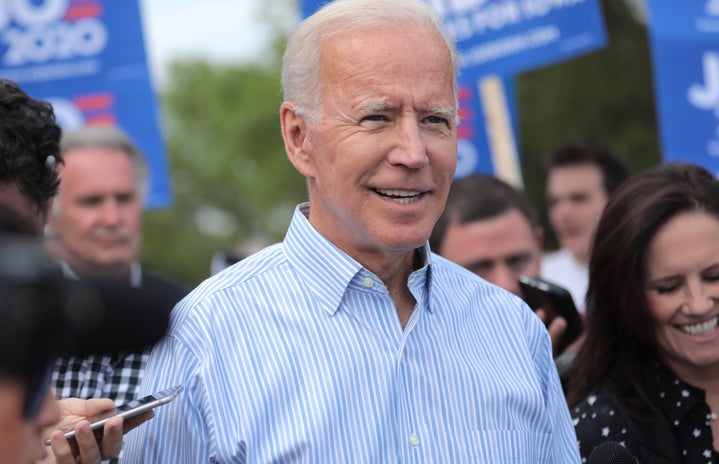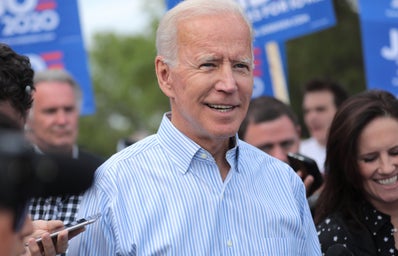There are many words to describe the year 2020, but one obvious phrase is politically dividing. In this past year, neighbors became strangers, true colors were revealed, and political priorities were set in stone. Even before 2020, separation and controversy increased within discussion of the government and Donald Trump’s leadership of the United States. So, Joe Biden’s 2021 inauguration is a large communal change. Inevitably, this change holds the heavy responsibility of handling the aftermath of division and gravity from the past four years. However, this aftermath is past year’s accumulation of complete separation. So no matter who is in positions of leadership, citizens of the United States have the job of preventing our own division from continuing to hurt everyone involved.
It is seen now more than ever that politics greatly impacts the livelihood of everybody, some more than others. As the United States continues to separate, more lives are being negatively impacted and even lost because of political decisions and disagreement. Whether it be pandemic policy, laws regarding women’s rights, actions towards racial injustice, or approaches to climate change, American lives are changing based on choices made in the White House. However, we have learned this lesson over and over again in the past, and a political fresh start on January 20th does not erase the damage that has been done to millions of lives. We have no choice but to learn from what has happened and move forward in action so that harmful political separations and cycles do not repeat.
As citizens, it is our responsibility to be politically knowledgeable and active so that we can make positive change. We owe it to ourselves and others to move forward from such a stressful time by actively using our new, experiential knowledge. For example, we have now experienced the harsh realities from dire situations like pandemics when people have such strong conflict and disagreement regarding health precautions. The next four years are extremely crucial to the wellbeing of the planet, women, minorities, and more, so now is the time to take advantage of your resources for the betterment of yourself and others. But how do we do that?
We may see our opposing political parties as antagonistic, nothing will ever happen for anyone’s benefit if this extreme disagreement among citizens continues to this degree. While diversity in opinion is good, having fellow citizens who fundamentally disagree with you on life-altering topics and ideas will be inevitably harmful to many when reaching legislation. What happens on our streets and in our cities reflects on political decisions made- so education, discussion, collaboration, and action within politics is necessary together to prevent another year of division.
With this, politics is no longer a topic you can excuse yourself from because what happens in the White House can take away lives and harm millions of people. Therefore, whether you consider yourself political or not, the morality and priorities of the people in this country are being truly revealed within the presence and absence of political discussion.
Trump’s four years of presidency created major public disagreement throughout an entire country, but it also shined a light on an already present divide. People now publicly disagree on topics that affect millions, leaving all governmental decisions to make a grand number of people unsatisfied regardless. So, knowledge of all perspectives, rather than just your own, can lead to effective contribution to political actions with more inclusive and factually-correct points. Below is a more detailed step-by-step description of our political responsibilities as citizens to help change the aftermath of 2020 and prevent the same tragedies from happening in 2021.
The first crucial step before doing anything is to acknowledge the political division and civilly discuss it. Especially within hot topics like politics, it is impossible for total, consecutive agreement- which is a good thing. Therefore, only being around people who agree with you is limiting yourself from the truthful, diverse realities of others. Having discussions with those who you disagree with is crucial because when you disagree with others, it forces you to question, expand, and solidify your own beliefs. Thus, it forces thorough research and articulation of morals within yourself and inevitably results in the exploration of more possibilities and more knowledge about topics that you care about. But where and how does one educate themselves with such a high density of different sources and varying opinions?
When you get yourself out of your own political bubble by educating yourself on all issues, you inevitably have to reach for political news outlets and media that are not geared towards your political stance. This leads to the next step, which is finding reliable sources that tell you the facts instead of telling you what you want to hear. Media biases are extremely harmful because they exclude information that is vital to forming opinions and understanding the entirety of situations. AllSides has a media chart that illustrates political bias in varying media outlets. From sources like the ones in the center column of their chart, you can gather information without filtering.
Your education on more concerns will also help create healthier discussions in your personal life. When disagreeing with a family member, co-worker, or friend on political matters, you will be able to say, “I understand what you are saying, and here is my perspective on that” rather than spiraling into an argument that fuels anger and no conclusion. Taking your newfound education and discussing it with others civilly can educate others on varying topics beyond their political party and can help you articulate and strengthen your opinions. This outline below or one similar to it is great for having a productive political discussion that can inspire the people involved to learn more about the points they are advocating for:
“Let me clarify what you said so that I understand correctly”
(Repeat what they said in your own words)
“Is that correct?”
(Keep doing so until they agree)
“Here is my perspective on that and why…..”
After continuous discussion and education, you are likely to form more conclusive and knowledgeable political opinions. Having a more broad understanding of how every issue affects everyone involved will allow you to invent more clear goals for yourself, which translates into political action. It is necessary to advocate with your newfound knowledge and help create change by educating others, but extending that conversation physically by participating in organizations, movements, and voting is an equally important step.
It is crucial to use your knowledge to passionately and consistently transform your education and discussion into action, but it’s hard to know where to start.
Knowing your local politics is a great first step. For example, knowing who your local legislators and politicians are and communicating with them is a great way to contact the source of change for your area. Also, pursuing local issues, helping to invite more people to get involved, and simply physically getting out and talking to people in your area can increase the likelihood of personally convincing and affecting people near you. Lastly, attending town hall and city council meetings, and volunteering for causes you care about are both present and active ways to be a part of the change in your area. These are just a few ideas on how to expand your political action to your hometown.
Beyond your neighborhood, there are bigger political actions to take as well. Registering to vote, protesting, joining a political party, a voting league, or an organization, donating to causes you care about, and campaigning on social media are all great ways to go further in your political action.
Lastly, it’s important to remember to never stop educating yourself and to keep an open, kind mind throughout it all.
Though the political disagreements that people of the United States are facing today are heavy and controversial, nothing can be done without political education, discussion, and action. Everyone does not and should not have to agree on everything. But, our biased news-fed political fights at the dinner table are reflected in the voting booths, and thus in our lives. So, learning more, talking more, and taking more action towards causes you care about are a few steps to make 2021 better, happier, and safer for more people.


